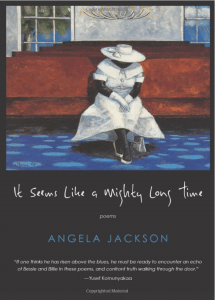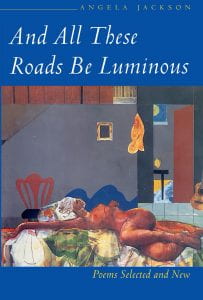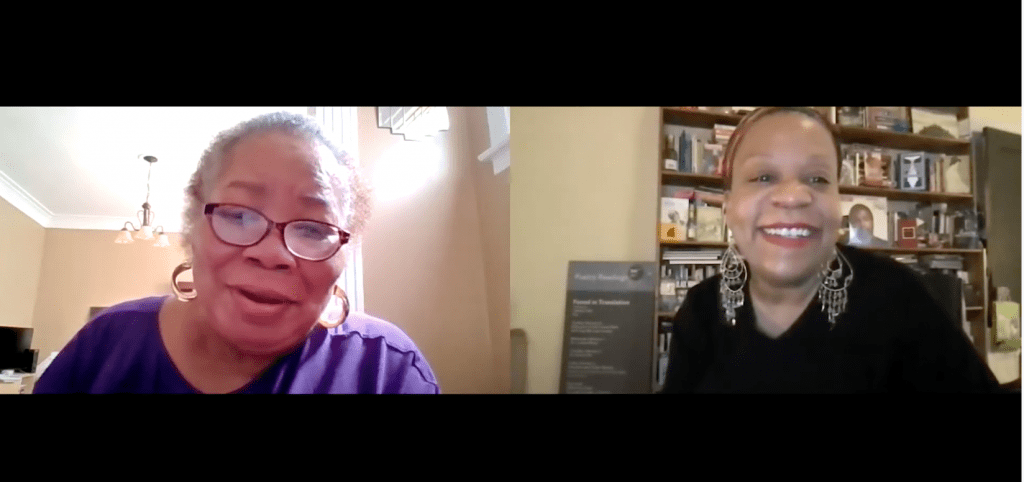Illinois poet laureate Angela Jackson has a post-pandemic mission of bringing the ephemeral beauty of poetry into the physical world.
Whether it’s in schools, senior centers, or prisons, “wherever people are congregated, I want to send ambassadors of the living word of poetry,” she said at a recent virtual National Poetry Month event co-sponsored by the Alumni Association and the Libraries.
A 1977 Northwestern graduate and award-laden writer, Jackson spoke in a conversation with Parneshia Jones, the director of Northwestern University Press, herself an award-winning poet. In their conversation, they reflected on Jackson’s long writing career, the challenge of being creative during a pandemic, and her plans as poet laureate, an appointment made by Illinois Gov. J.B. Pritzker in November. (Watch the recorded event.)
 Much of Jackson’s poetry has been published by University Press’s TriQuarterly imprint, including 1998’s And All These Roads Be Luminous: Poems Selected and New (nominated for the National Book Award), and 2015’s It Seems Like a Mighty Long Time (nominated for the Pulitzer Prize, and a finalist for many others ). University Archives holds Jackson’s personal papers, comprising materials about her writing process, her speaking and teaching engagements, and her personal correspondence.
Much of Jackson’s poetry has been published by University Press’s TriQuarterly imprint, including 1998’s And All These Roads Be Luminous: Poems Selected and New (nominated for the National Book Award), and 2015’s It Seems Like a Mighty Long Time (nominated for the Pulitzer Prize, and a finalist for many others ). University Archives holds Jackson’s personal papers, comprising materials about her writing process, her speaking and teaching engagements, and her personal correspondence.
Hanging over Jackson’s and Jones’ conversation was the legacy of another Illinois poet laureate, the only other Black woman to hold the title: Gwendolyn Brooks.
“Gwendolyn Brooks was a role model for me as a poet because Gwendolyn Brooks was a genius,” Jackson said.
Brooks was named the state’s poet laureate in 1968 (succeeding Carl Sandburg), and she held that title until her death in 2000. In 1950, she became the first Black writer to win the Pulitzer Prize, thrusting her poetry—often ruminations of Black life in her South Side Chicago neighborhood—into the national spotlight.
“The way she represented African American people with such love and care and truthfulness” set her apart, Jackson said. “What she saw in Black people, she saw in all people. By being faithful to her own experience, she was faithful to humanity.”
In turn, Jones cited Jackson as her own early inspiration. As an editor, Jones revitalized the Press’ TriQuarterly imprint and built its catalog of ward-winning poetry titles. As a writer, her Vessel: Poems was selected by O, the Oprah Magazine as one of “12 New Books of Poetry to Savor” in 2015.
“You were one of the first poets I saw who looked like me,” Jones told Jackson. “I started to understand that women who looked like me could be literary figures among the Ernest Hemingways and the Phillip Roths and the Shakespeares. That gave me a certain permission to say, ‘I think I want to be a part of this world.’”
Jackson’s collection More Than Meat and Raiment: Poems will be published by University Press in 2022.

